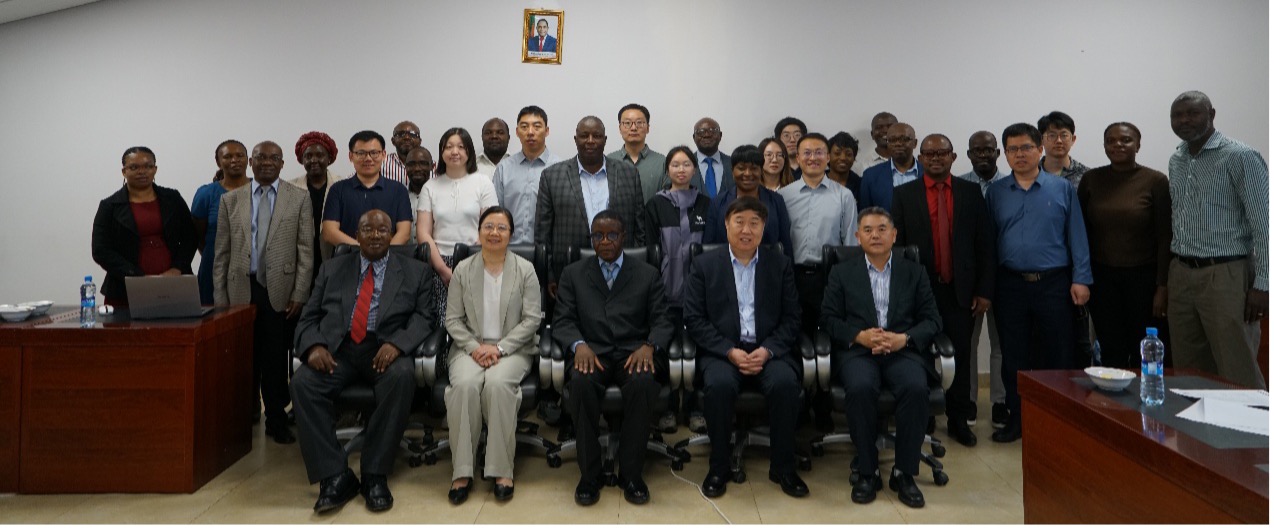NSFC-UNEP Program Launched to Unlock Zambezi Basin's Sustainable Agriculture and Boost Africa's Food Security
A Model for South-South Cooperation
The project unites researchers from Beijing Normal University, the University of Zambia, University of Zimbabwe, Catholic University of Mozambique, and Botswana University of Agriculture and Natural Resources. It seeks to harness advanced Earth observation technologies, interdisciplinary research, and capacity-building to tackle food insecurity, climate resilience, and ecological sustainability in the Zambezi Basin—a region home to 40 million people grappling with climate change and resource competition.
Addressing Africa’s Food Security Challenges
During the launch, Professor Mundia Muya, Vice-Chancellor of the University of Zambia, underscored the urgency of the program: "The Zambezi Basin’s communities face escalating threats from climate extremes and competing demands for water, energy, and arable land. This project will provide systemic solutions to harmonize these critical sectors, safeguarding both food security and ecological health for future generations."
Professor Thomson Kalinda, Dean of Agriculture at the University of Zambia, hailed the program as a "benchmark for South-South cooperation," emphasizing its potential to empower scientific policymaking and sustainable development across Southern Africa.
Innovative Approaches for Sustainable Solutions
The project will deploy cutting-edge satellite remote sensing to monitor agro-ecosystems, optimize agricultural spatial planning, and assess yield potential across the basin. Four core research themes include:
1. Remote sensing of agroecosystems, evaluate of the quantity, quality, and spatial distribution of agro-ecosystems in the region.
2. Develop optimization and regulation strategies for agro-ecosystems and cropping patterns and identify key constraints to agricultural productivity.
3. Strategies to boost agricultural productivity, assess pathways for agricultural enhancement, while minimizing ecological and hydrological impacts.
4. Analysis of water-food-energy-ecology interactions under climate and land-use changes.
Professor WANG Yanfen, Vice-President of the University of CAS, highlighted the project’s interdisciplinary foundation: "By integrating China’s expertise in Earth observation with African partners’ on-the-ground knowledge, we aim to define safe boundaries for sustainable land and water use and chart actionable pathways for resilient development."
Professor WU Bingfang, lead researcher from AIR, stressed the project’s focus on uncovering synergies and trade-offs among water, food, energy, and ecology. "Our goal is to establish a scientific framework to balance agricultural expansion with environmental preservation, ensuring long-term food security without compromising the basin’s ecosystems," he stated.
Fieldwork Informs Actionable Insights
Prior to the launch, international experts conducted field surveys along the Zambezi River to assess pressing challenges, including agricultural practices, soil degradation, water scarcity and instability, and deforestation. Post-launch, the team will continue field studies in Zambia to gather critical data for modeling sustainable development scenarios.
A Vision for Africa's Future
As climate change intensifies, the Zambezi Basin—with its vast untapped agricultural potential—could emerge as a cornerstone of Africa’s food security. This collaboration exemplifies how global partnerships, advanced technology, and science-driven strategies can turn ecological and socio-economic challenges into opportunities for inclusive growth.

Group photo of the program lauching meeting. (Image by AIR)



News & Events